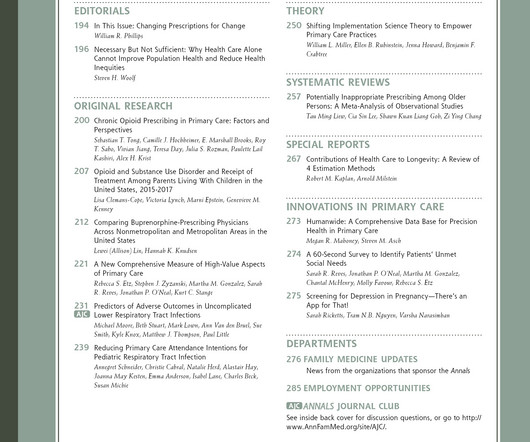Ambulatory Behavioral Health Referral Patterns in the Setting of Chronic Medical Conditions [Behavioral, psychosocial, and mental illness]
Annals of Family Medicine
NOVEMBER 20, 2024
Context: Patients with chronic medical conditions (CCs) and behavioral comorbidities have lower quality of life and increased healthcare expenses. 88% (n= 11,483) of BH referrals were created for the management of a mental health condition. 8% (n= 1,146) were ordered for medical condition management.















Let's personalize your content